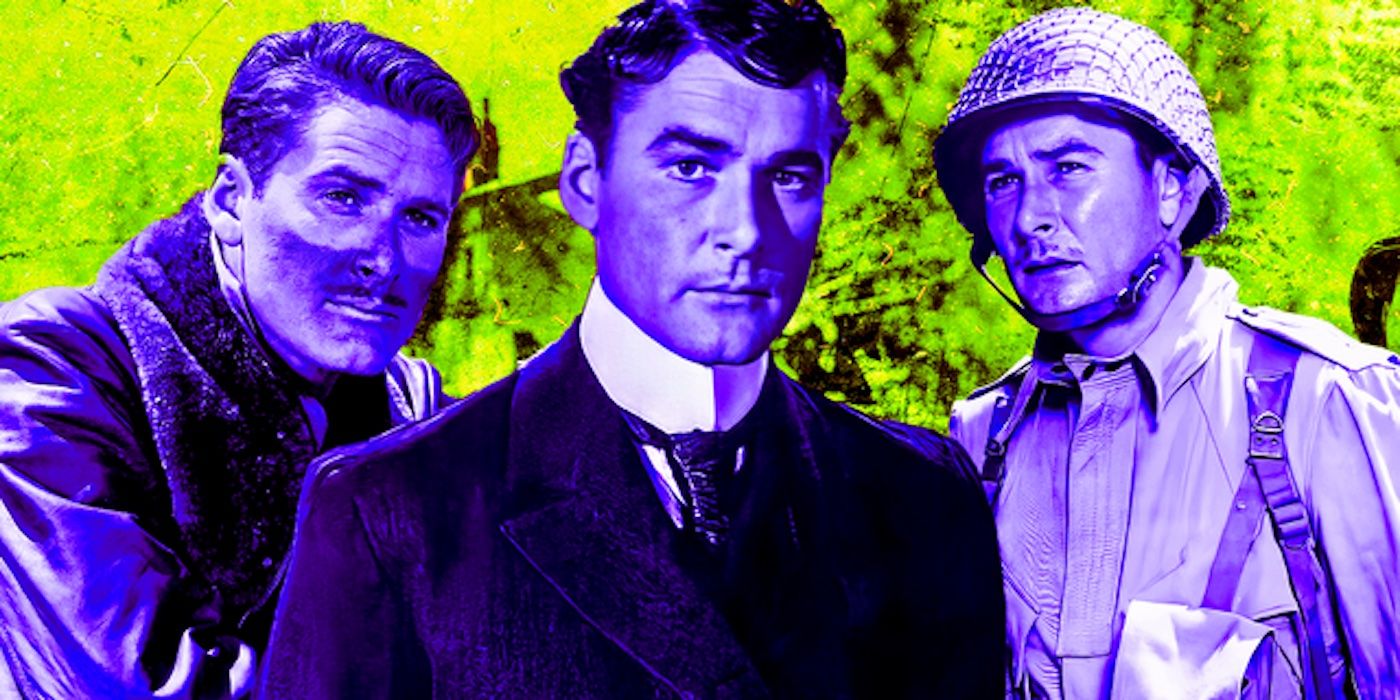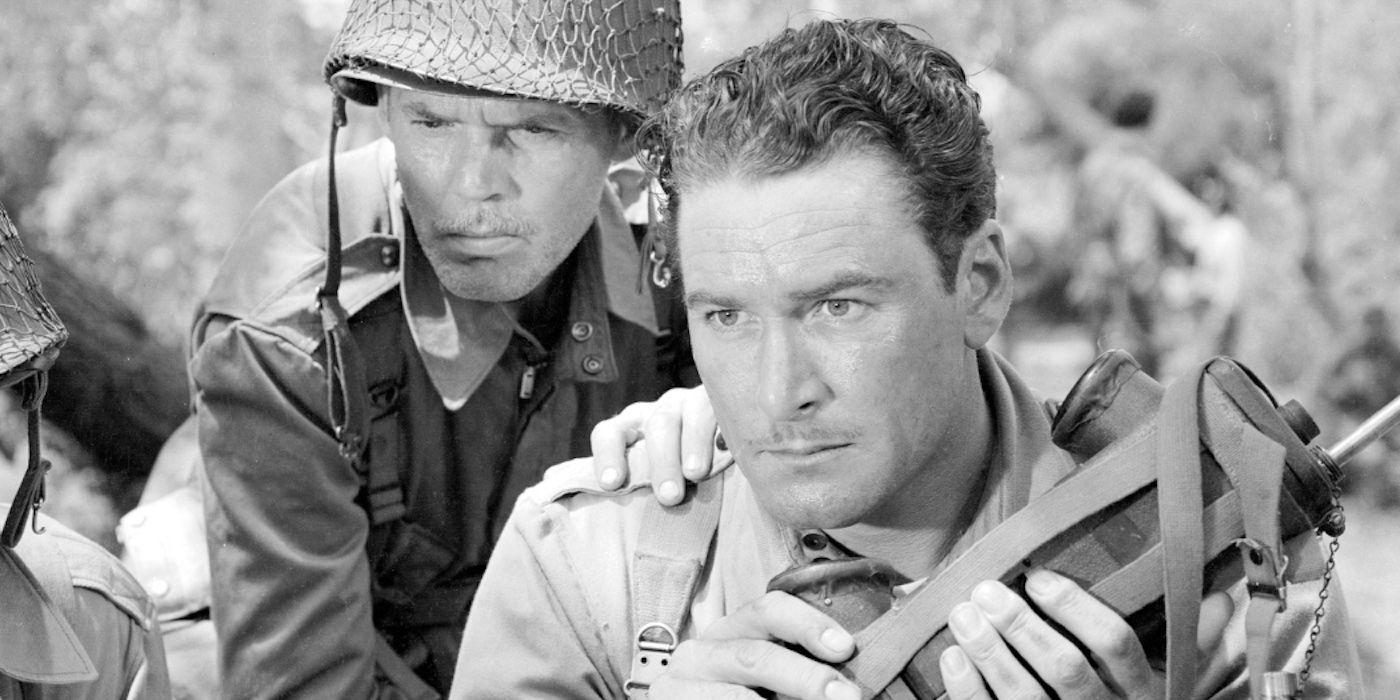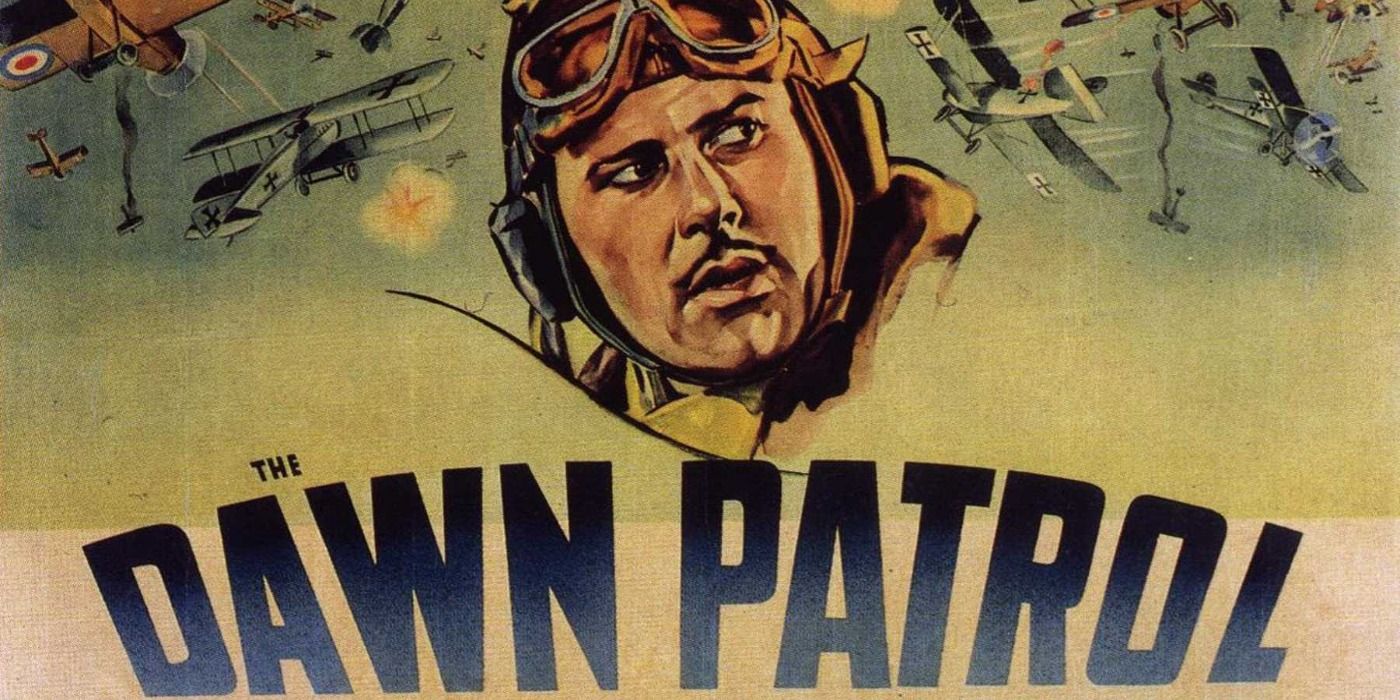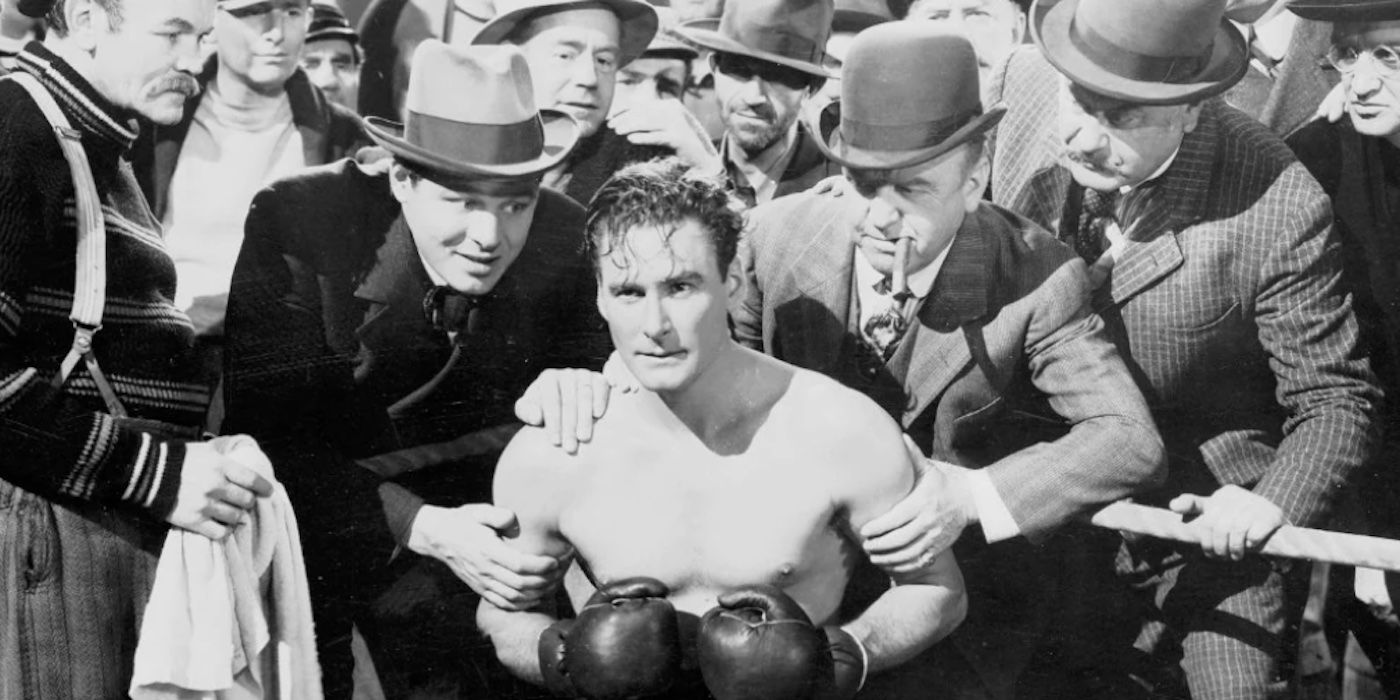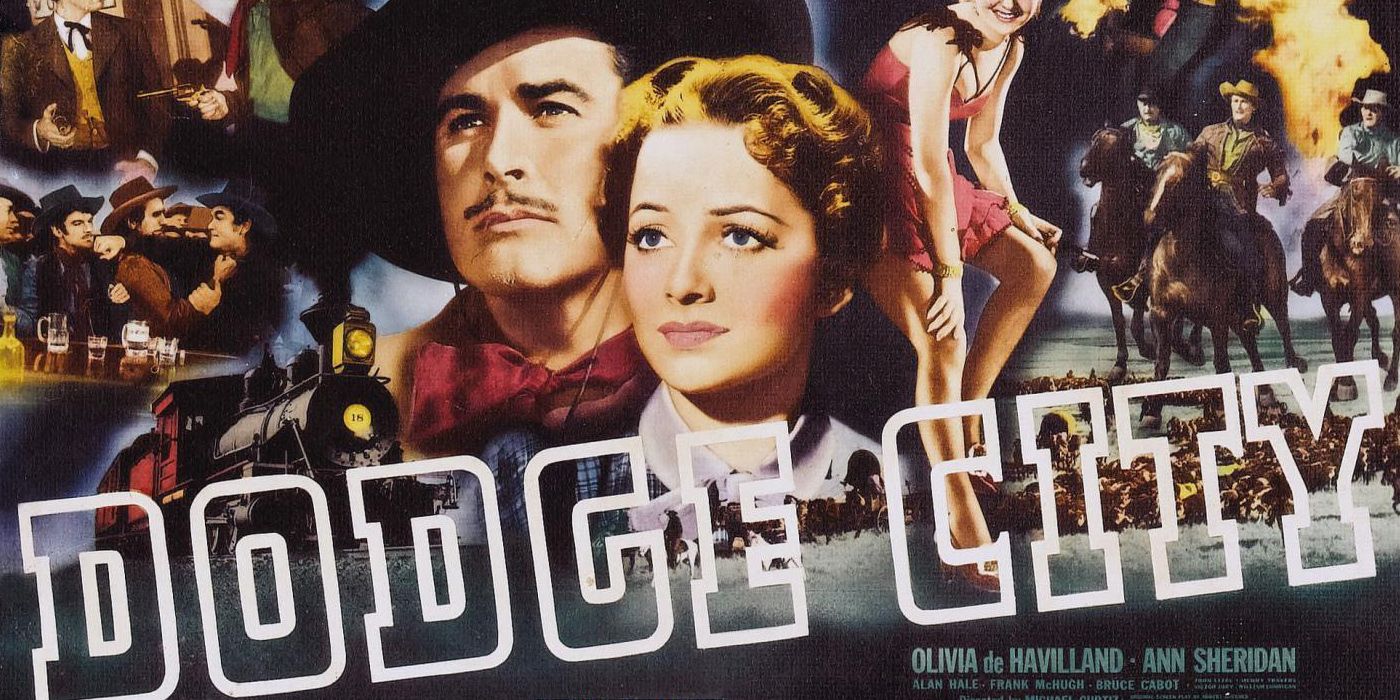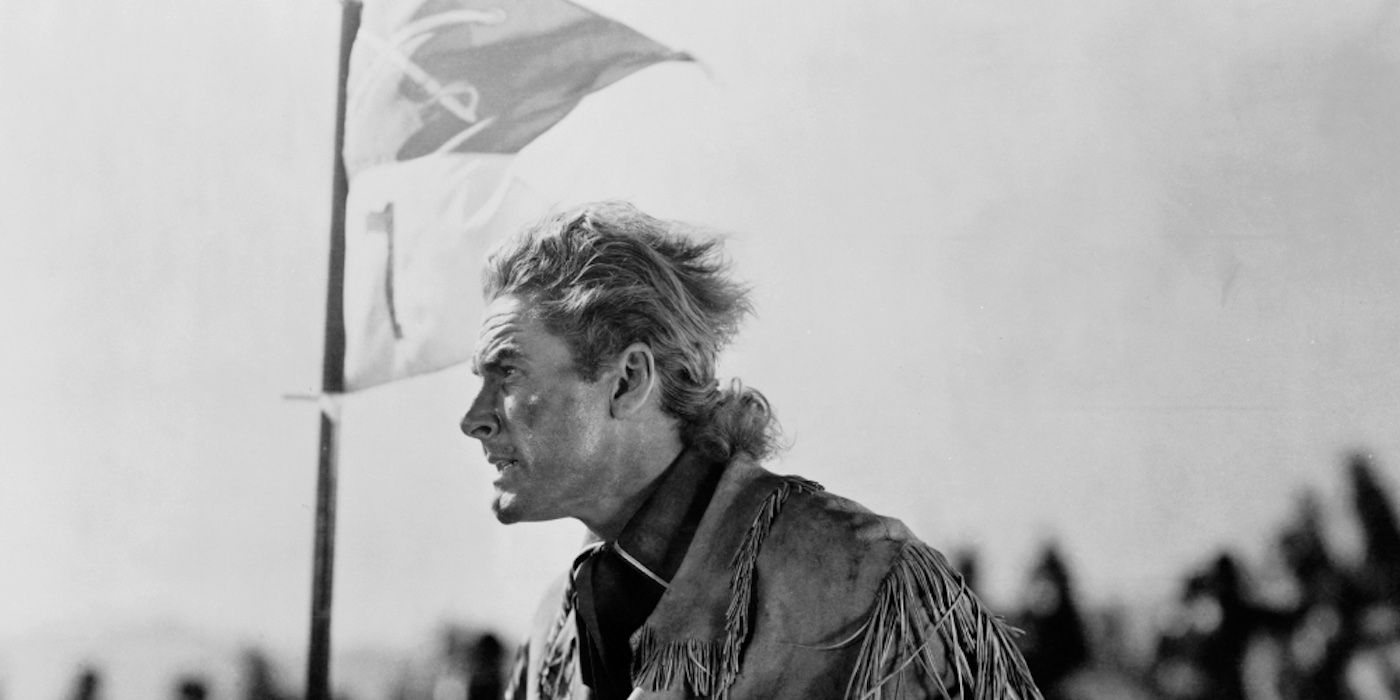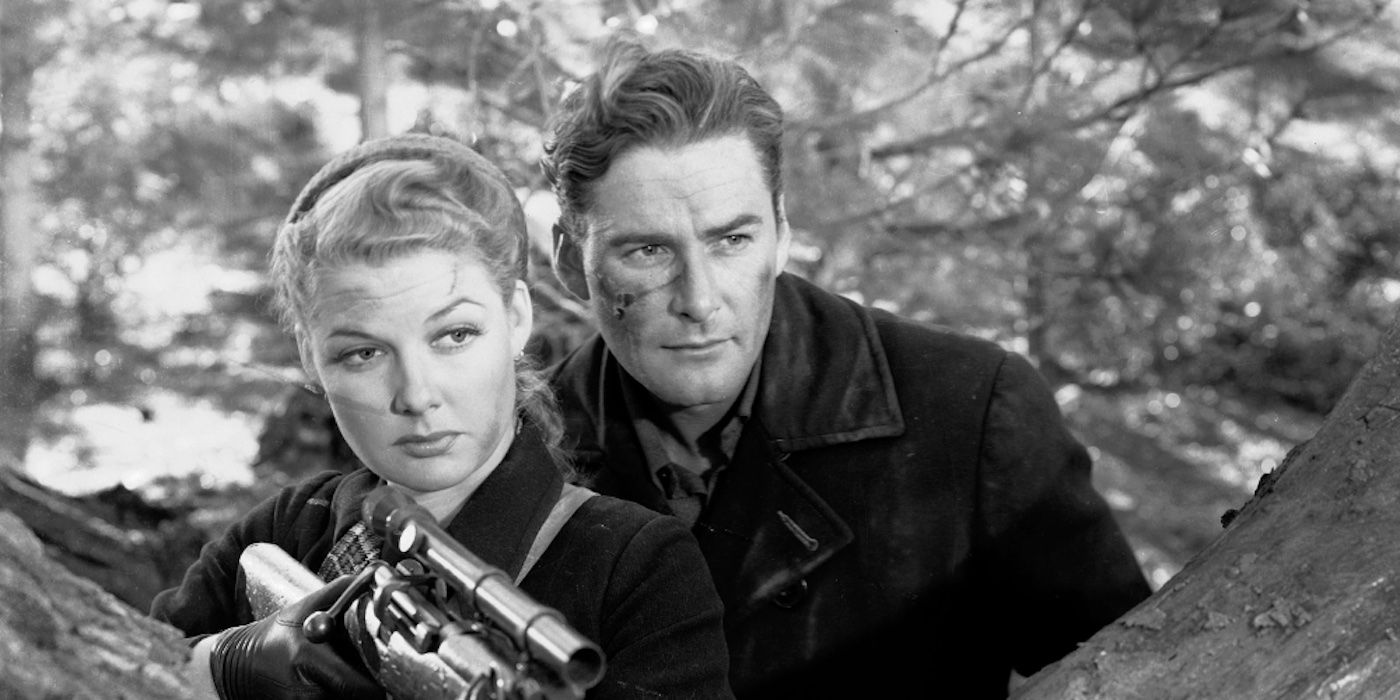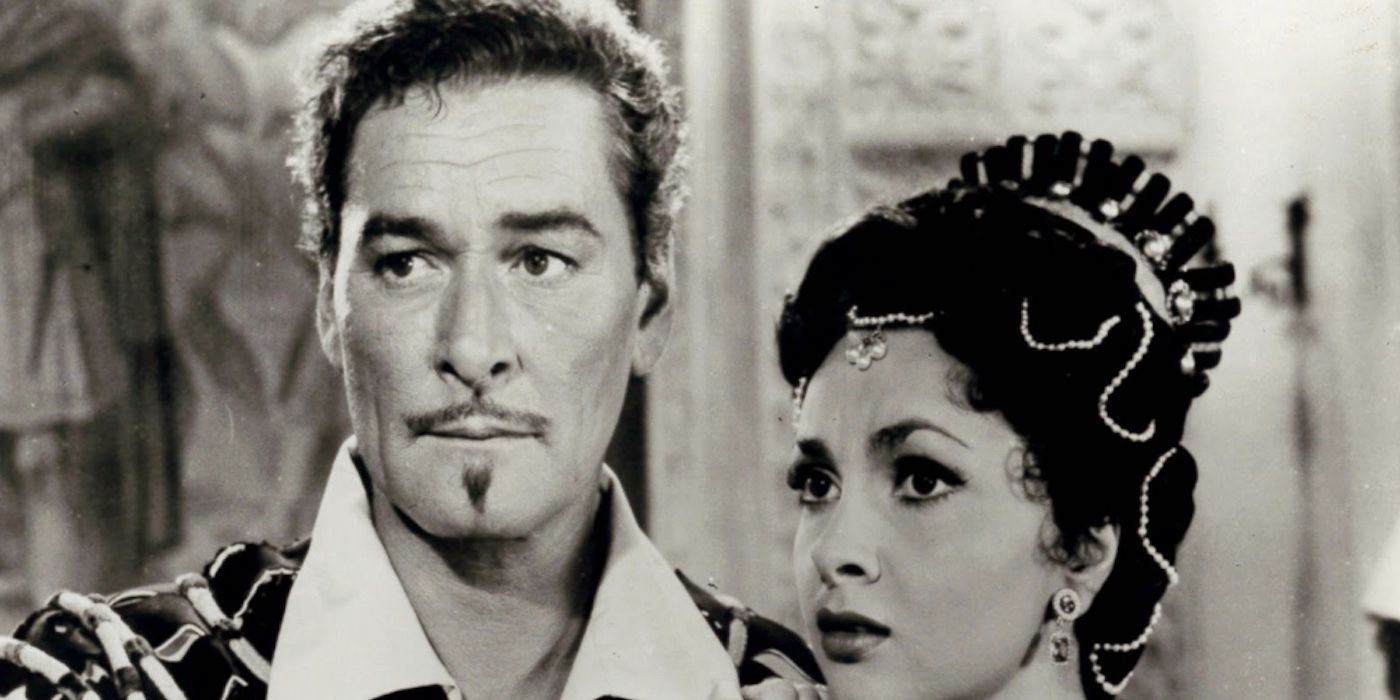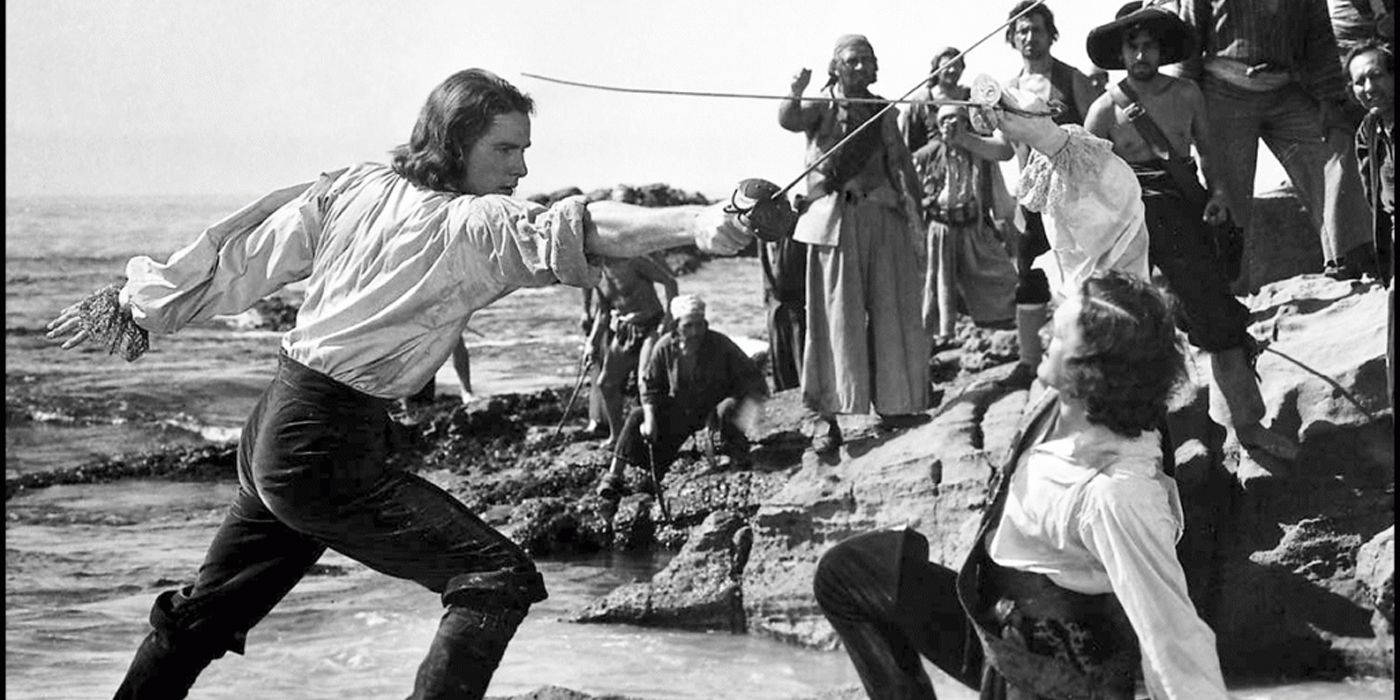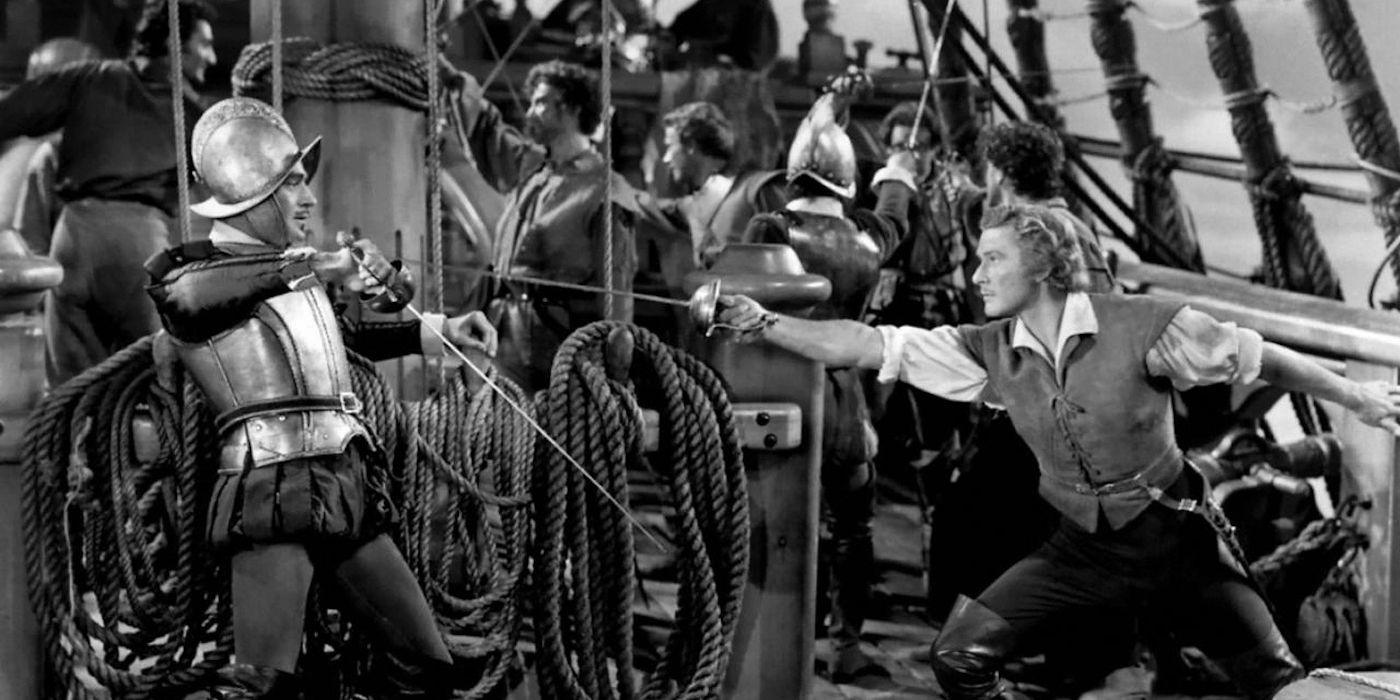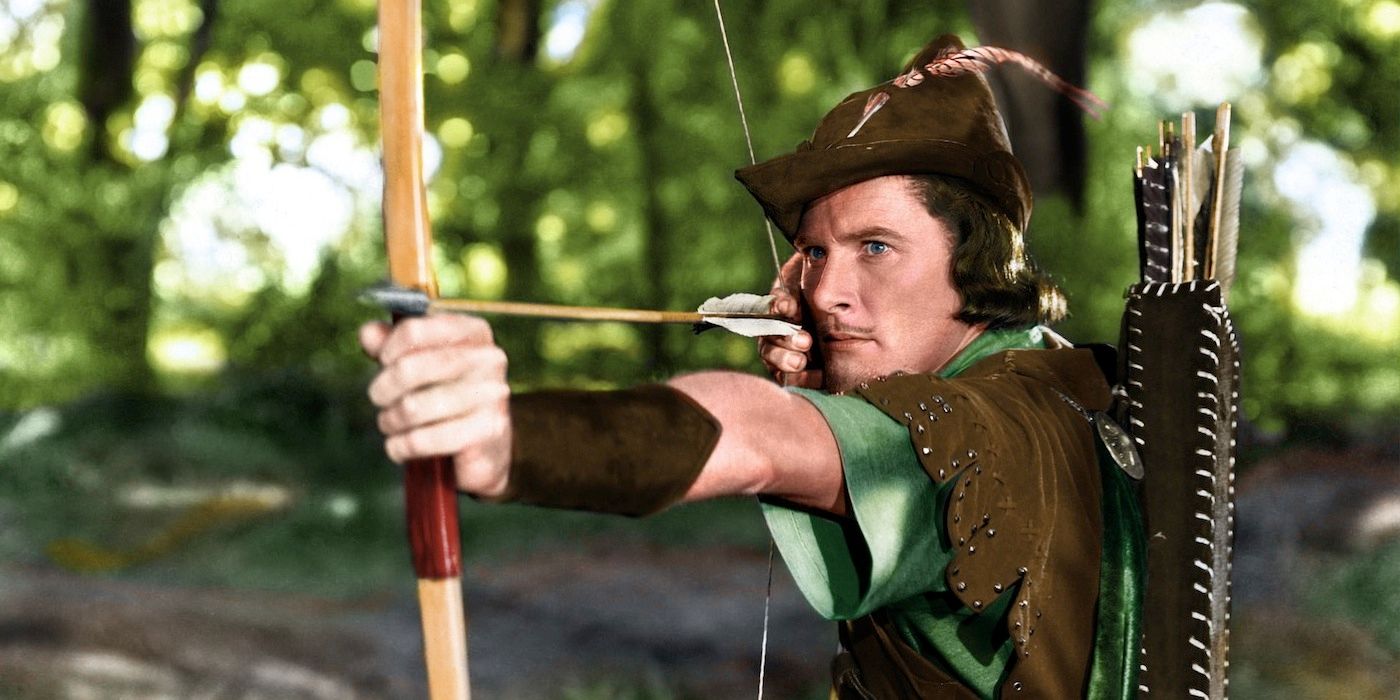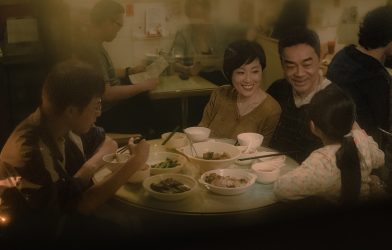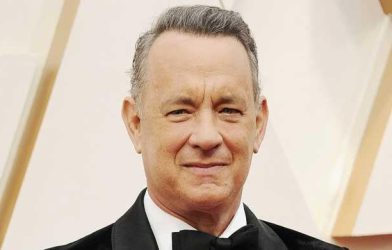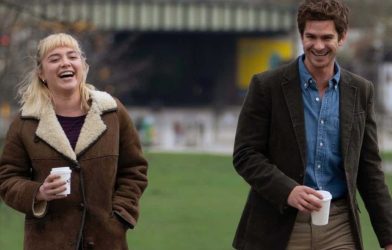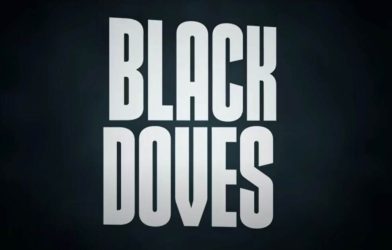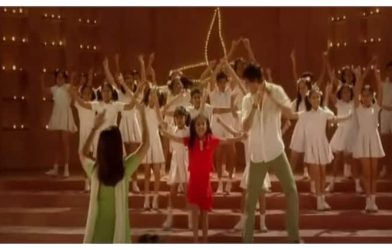The name Errol Flynn is still synonymous with the Classic Hollywood era decades after his death and a look back on his best movies explains why this is the case. Errol Flynn was one of the first true movie stars. An Australian-born actor, Flynn moved to Hollywood in the early ‘30s after gaining a few minor roles in Australian movies. In California, Flynn became a bigger star than he could have ever dreamed when he got the lead role in 1935’s Captain Blood. This classic swashbuckling adventure movie proved that Flynn had charisma to spare and, before long, he was one of Hollywood’s most in-demand leading men.
A string of hits followed, as well as a turbulent private life and some legendarily troubled productions like Flynn’s infamous Adventures of Don Juan. However, despite Flynn’s hard-partying lifestyle and on-set spats, the actor remains one of the biggest and most influential movie stars of his time. A look back on the classic swashbuckling hero’s best movies explains why he was once Warner Bros’ biggest star and proves just how much Flynn’s screen persona shaped the careers of later stars over the decades.
10 Objective, Burma!
While Objective, Burma! may look quaint by modern standards, the WWII movie was praised upon its 1946 release for not glamorizing the harsh realities of conflict. Objective, Burma! stars Flynn as Captain Nelson, whose team of soldiers was selected to destroy an enemy radio station in occupied Burma. Loosely based on a real-life raid by Merrill’s Marauders, Objective, Burma! went into production mere months after the events the movie depicts took place. While it is far from the sort of sad emotional war movie viewers may now be accustomed to, Objective, Burma! still paved the way for those films with “no phony heroics” according to the New York Times.
9 The Dawn Patrol
1938’s The Dawn Patrol stars Flynn and David Niven as Royal Flying Corps pilots fighting in WWI, and the movie certainly took advantage of the distance between the events it depicted and its release. If Objective, Burma! took a surprisingly grounded look at WWII, The Dawn Patrol couldn’t be a more glamorized take on WWI. All the early Hollywood war movie clichés are present and correct from the grim pronouncements of the doomed heroes to their short life spans, to their heavy drinking and unexpectedly warm carousing. However, there is a sense of earned, moving elegy underpinning all the machismo.
8 Gentleman Jim
1942’s Gentleman Jim starred Flynn as the real-life heavyweight champion James J. Corbett and remained Flynn’s favorite of his movies until his death. It is easy to see why, as the larger-than-life Corbett allowed Flynn to embody his real-life personality onscreen. Boisterous, charming, and pugnacious, Corbett is the archetypical antihero and the perfect part for Flynn at his most brash. While later boxing movies like Scorsese’s darker Raging Bull would go on to deconstruct the genre’s romantic image of its heroes, Gentleman Jim helped establish this tradition in the first place.
7 Dodge City
1939’s Dodge City is a rip-roaring Western that sees Flynn’s Wade Hatton bring the law to the eponymous Kansas town. When Flynn’s cowboy arrives in Dodge City and sees the sorry state of the lawless place, he is quick to reach for his holster and administer some justice. While the story of a cowboy becoming a small-town sheriff to bring law and order out west became a cliché in the years that followed, Dodge City shows just why this enduringly popular Western plot was so appealing. A fun ride, Dodge City proves the swashbuckling hero could pull off Westerns, too.
6 They Died With Their Boots On
In 1941’s They Died with Their Boots On, General Custer’s infamous last stand is portrayed about as faithfully as William Wallace’s story in Braveheart. However, what They Died with Their Boots On lacks in historical accuracy, it makes up for in old Hollywood glamor. The last of Flynn’s screen collaborations with his frequent collaborator Olivia de Havilland, this Civil War biopic is as full of fun set pieces as any of Flynn’s swashbuckling adventure movies.
5 Edge of Darkness
1943’s Edge of Darkness was an unusually grim movie for Flynn, who stars as a German rebel working against the Nazis in a small village. The tense story of Edge of Darkness follows Flynn’s Gunnar as he plots against the Nazis, but the heroics typically seen in the star’s movies are thin on the ground here. Edge of Darkness was a more unsettling, darker sort of war movie that depicted the effect conflict had on the lives of innocent civilians, and the movie was a daring choice for Flynn at the height of his popularity because of this.
4 Crossed Swords
1954’s Crossed Swords (also known as The Teacher of Don Juan) was considered an inessential entry into the swashbuckling adventure sub-genre upon release. However, the time has been kind to this Flynn vehicle. Its story sees Flynn pay another dueling adventurer who attempts to woo the daughter of a duke amidst a pile-up of increasingly convoluted double-crosses. The plot might be predictable, but the swordplay and verbal sparring still shine in this fun testament to Flynn’s charming knack for adventure stories.
3 Captain Blood
While the actor was unknown when he was cast in 1935’s Captain Blood, Errol Flynn became a Hollywood legend thanks to the movie’s success. Captain Blood saw Flynn play a doctor who escaped imprisonment to become a seafaring swashbuckler. Flynn’s sword-slinging charm carried the movie and saw the actor become a symbol of the “unvanquished man” in an era when the Great Depression ravaged America. While Flynn made riskier, more interesting movies later in his career, his screen presence was never more magnetic than in his Hollywood debut.
2 The Sea Hawk
Released in 1940, The Sea Hawk was a swashbuckling adventure movie that handily doubled as pro-British propaganda during World War II. The Sea Hawk starred Flynn as a privateer who decided to defend Britain against the Spanish Armada instead of simply making as much money as possible by paying both sides against each other. Where later Hollywood heroes like Gone With the Wind’s Rhett Butler would wear their apolitical status with pride, Flynn’s hero is awarded for his patriotism with a romantic subplot.
1 The Adventures of Robin Hood
1938’s The Adventures of Robin Hood epitomized the appeal of Errol Flynn like no other movie. An endlessly influential adventure story, The Adventures of Robin Hood saw Flynn star as the legendary Robin Hood and Olivia de Havilland play his love interest Maid Marian. The action still impresses, the story is a classic, and this Errol Flynn movie was such a huge hit upon its initial release that The Adventures of Robin Hood was nominated for Best Picture at the Oscars.

